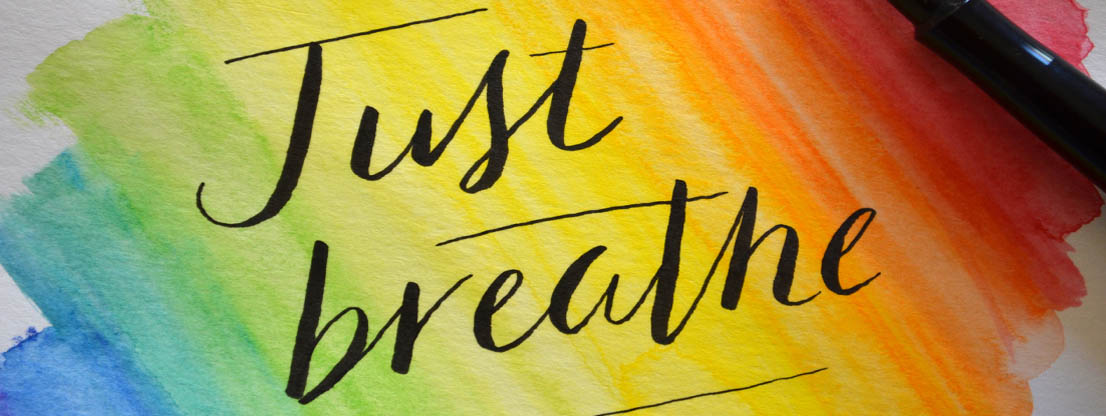You probably know the feeling: a strange look, one word too many and suddenly your pulse races, even though everything was peaceful until a moment ago. Or just when everything has been too much for you all day. Everyone knows the feeling of anger, the explosive mixture that brews in your stomach and smoulders there, or breaks its way in harsh words.
But what actually happens in the body when we are angry? And what helps against anger? Can we let go of our anger with meditation, or can we even use the resulting power positively? We find answers to these questions today.
As angry as a bull – This is what happens when you are raging in your body
Anger and aggression are as old as mankind itself. That is why our centre of utility is located in a part of the brain that has existed for a very long time in evolutionary terms: the limbic system. One part of this is the so-called amygdala, whose nerve cells are responsible for various emotions, including fear and anger.

If the amygdala receives stimuli from the eyes or ears that suggest an angry reaction, it immediately sends warning signals to the entire body. At the same time, the amygdala inhibits the activity of the cerebral cortex, which could intervene to control this process. This leads to uncontrolled anger, which only becomes easier to control when the hypothalamus also sends warning signals to the cerebral cortex. However, this happens much more slowly than the limbic system issues its warnings. Accordingly, we are initially stuck in our uncontrolled anger.
Breathing and pulse rate and blood pressure rise, blood vessels constrict and muscles become tense: We are on the alert. Our surroundings can also easily recognise this: With the lower jaw advanced, eyes narrowed and sometimes teeth clenched, we clearly show that caution is required when dealing with us. [1]

Calm down – Let go of anger with meditation
For the reasons mentioned above, you are not very accessible for good arguments or debate at the first moment when anger comes over you. You are more likely to be seething inside, thoughts are racing through your head, and perhaps unwanted aggressions are stirred up. Being angry, as you will read later, is not a bad thing. But to use the energy of your anger in a positive way, you first have to get it under control. A simple method is to give yourself air: Take ten deep breaths in and out. 2] This will give your hypothalamus more time to spark the cerebral cortex, which inhibits anger. You can also let go of your anger with this simple meditation and calm yourself down, because if your breath is relaxed, your body will be relaxed after a short time. This effect will become more and more evident with more meditation practice.

It also helps to walk around the block or do some exercise to get some fresh air and activity. In this way you release the energy created by your anger and eliminate excess adrenaline. Laughing can also have a relaxing and liberating effect. [3]

Angry, but not helpless – learn meditation and see more clearly
If you often struggle with getting angry, it makes sense to learn meditation. Mindfulness meditation in particular can help you in the long run. It teaches you to look at the world without judging it – so you don’t run away from the slightest stimulus, but can observe it from a distance. [4]
You also learn to recognise more easily what actually makes you angry. Observe yourself attentively and in a friendly manner. The more attentive you are to your inner self, the less vulnerable you are to your feelings. So with a mindful attitude it is easier for you to shape your life consciously and freely. [5]

Gain strength – The positive sides of anger
Suppressing anger makes you mentally ill in the long run. Why? Because it releases energies that are designed to remove obstacles. Anger indicates that your boundaries have been crossed – whether through disappointment, inappropriate criticism, an attack on your personality, harassment, excessive demands or something else entirely. So if the anger turns into aggression in the heat of the moment, it is actually a protective psychological reaction. In order not to let people, things or even yourself get hurt with this impulsiveness, but also to avoid suffocating yourself, it is important to use the released power in another way.

Apart from the above-mentioned possibility of getting your energy up while doing sports, you can write down exactly what made you angry – here we are back to mindfulness: When you realise which limit has been crossed, you can consider how you can help to ensure that it does not happen again. Maybe the person you are talking to doesn’t know that he or she has hurt you and made you angry with their statement, and you can talk about it. Or maybe you have been irritable all day because a lot of little things have brought you to the brink of being overwhelmed. Often it is only the last drop that makes the barrel overflow. The more exactly you know what is going on inside you, the clearer it becomes how you can use your power positively.

Meditation can be a first step to be more attentive to yourself and your environment, to observe yourself more attentively and thus to deal with your anger more confidently. Regular meditation does good in many different ways – you can read some of the remarkable effects in our article “What does meditation do? Or would you prefer to try it out yourself right away? Then download the sonamedic app for free and start with a 10-minute guided meditation. We wish you good relaxation! [1]

Sources
[1] Die Macht von unterdrückten Gefühlen: Wie sich innere Wut auf die psychische Gesundheit auswirken kann. Oberbergkliniken. Letzter Zugriff: 08.12.20, Online.
[2] Ganz cool bleiben: So lässt sich Wut in den Griff bekommen. Mobile-e. Das e-Magazin der BKK Mobil Oil, 02/2018. Letzter Zugriff: 08.12.20, Online.
[3] Schnelle Selbsthilfe bei Aggressionen – 5 Strategien, die du noch heute anwenden kannst! Letzter Zugriff: 08.12.20, Online.
[4] Blech, Jörg: Die lernende Seele. In: Spiegel Psychologie, 08.12.2013. Letzter Zugriff: 08.12.2020, Online.
[5] Simon, Claus Peter; Kirady, Maria: Wie Meditation gegen belastende Gedanken hilft. GEO Wissen Gesundheit. Letzter Zugriff: 08.12.20, Online.




